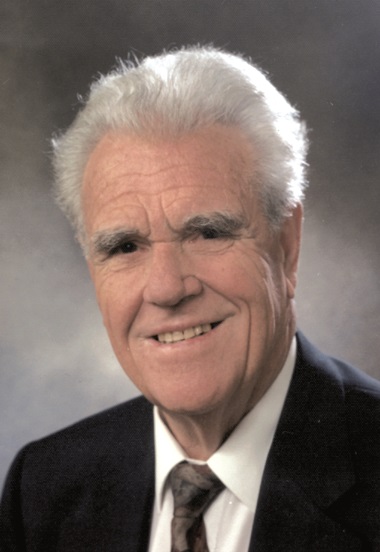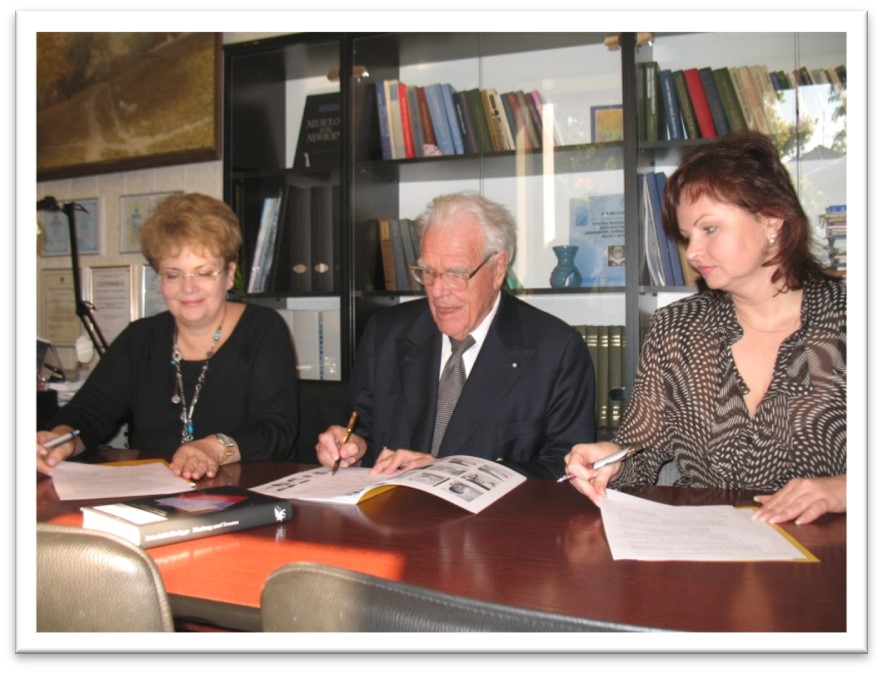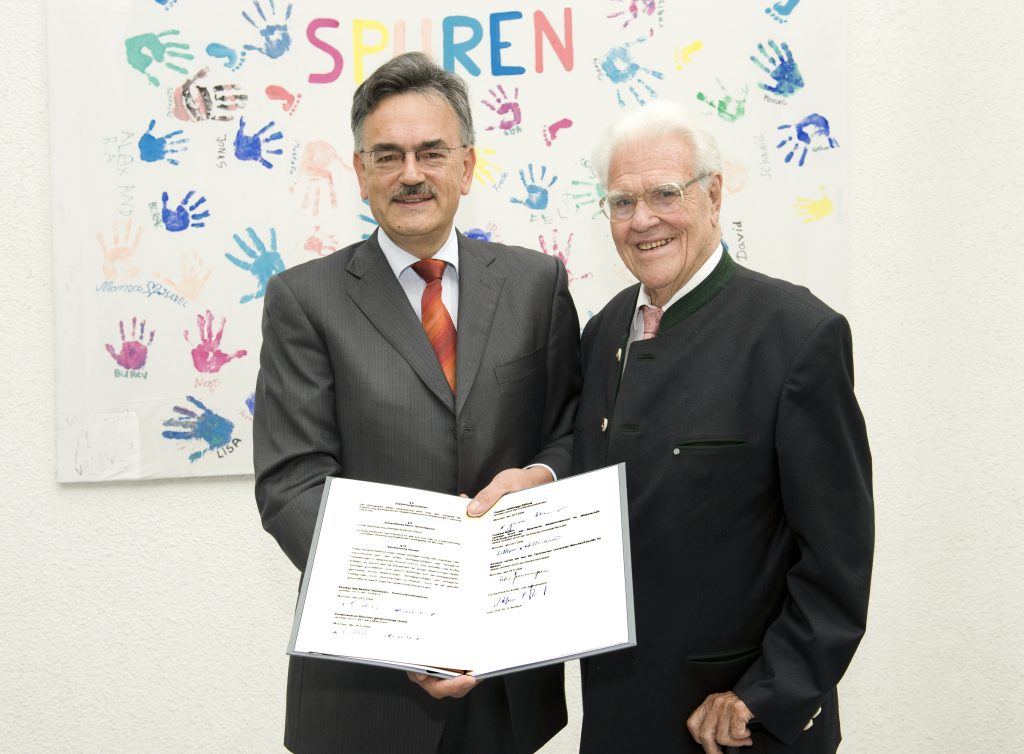Prof. Dr. Dr. h.c. mult. Theodor Hellbrügge, pediatrician

Theodor Friedrich Hellbrügge was born in Dortmund on October 23, 1919. His father was a general practitioner and was responsible for a large workers’ housing estate in Dortmund. Theodor Hellbrügge accompanied his father on house calls. It was certainly here that Mr. Hellbrügge became acquainted not only with general medical practice, but also with its socio-medical aspects. At the beginning of the war, he had studied medicine for a year and was drafted into the military hospital service in Munich as a medical student. He continued his medical studies during the war in Münster and then in Munich together with his wife Johanna. During his state examination, he attracted the attention of Prof. Wiskott with his detailed and highly critical review of a case. He secured him a first position at the Hauner Children’s Hospital for his traineeship. He qualified as a specialist in pediatrics in 1951, habilitated in 1954 and was appointed aPL professor in 1960. He founded the Institute for Social Pediatrics and Adolescent Medicine and became Chair of Social Pediatrics in 1976. As early as 1968, he founded the Munich Children’s Center and the first Montessori kindergarten with integrated education for children with and without disabilities. This later evolved into a school. However, Theodor Friedrich Hellbrügge himself described the inauguration of the new building of the Munich Children’s Center on 27.10.1989 as his own professional highlight.
Prof. Hellbrügge wrote over 1000 publications and edited over 60 books. He founded the journals “Der Kinderarzt”, “Die Kinderkrankenschwester”, “Die Kindergesundheit”, the journal “Sozialpädiatrie” and the “Teleforum”. Many of these journals still have a very large readership today. His scientific topics were diverse, for example one of his first papers dealt with vitamin D prophylaxis and the development of a water-soluble form of Vigantol. Together with his teacher Meinhard von Pfaundler, he redefined the term deprivation by studying children from an orphanage in which he found massive developmental deficits despite healthy somatics. Development and the promotion of development became one of his major topics, not least because he carried out one of the largest longitudinal development studies ever conducted in German-speaking countries as part of the Munich Functional Development Diagnostics.
Theodor Friedrich Hellbrügge founded numerous institutions, not least over 200 institutions modeled on the Munich Children’s Center. He became involved in the committees of the Marburger Bund early on and founded the Munich local group. He was active in the state and federal medical associations, a member of the Association of Statutory Health Insurance Physicians and the Federal Association of Pediatricians, and for many years was a member of the board of the Society for Social Pediatrics and Adolescent Medicine. He has received numerous honors for his work, e.g. the Moro Prize, the Ernst von Bergmann Medal, the Wischewski Medal and the Theodor Heuss Prize. He received the Pestalozzi Prize, the Otto Heubner Prize, the Paracelsus Medal, the Apple Tree of the Swiss Academy Amriswil and the “München leuchtet” medal. He was honored with the Bavarian Order of Merit, the Bavarian State Medal and the Federal Cross of Merit, the Golden Badge of Honor of the German Parity Welfare Association and the Meinhard von Pfaundler Medal. Last but not least, he received the Grand Cross of the Order of Merit of the Federal Republic of Germany from the Federal President.



